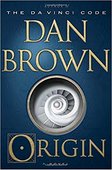Learning about learning
God is Dead. Really?
Nietzsche was an atheist, and one of many out to disprove the existence of God. It's interesting that he sets this parable in a market, so we have ordinary people listening to someone who appears to be insane. The madman carries a lit lantern when there is no need for light. He starts out looking for God, crying, "I seek God!" and those in the market tease him, asking if God is lost, or has lost his way, has emigrated, or gone on a voyage. It's interesting that he is carrying a light. In the Bible, light is an oft used image for the illumination of God.
He then says we have killed God, and asks questions similar to the ones that God chastises Job with:
The madman goes on to ask, "How shall we comfort ourselves, the murderers of all murderers? What was holiest and mightiest of all that the world has yet owned has bled to death under our knives: who will wipe this blood off us? What water is there for us to clean ourselves? What festivals of atonement, what sacred games shall we have to invent? Is not the greatness of this deed too great for us? Must we ourselves not become gods simply to appear worthy of it?" To answer the madman, yes, it was people who crucified Jesus. His blood is on us. It was our sins - the wrong things that we have done - that Jesus came to die for. He allowed himself to be crucified. But he did not stay dead. The resurrection was evidenced by many, and He provided atonement for our sin through His death. We find God when we believe that. When God feels non-existent, it's not God who has moved. His evidence exists in creation, and in the changed lives of people who believe in him. I am one of them, and like the crowd in the story, many of my friends deny his existence and think like the madman, I am the fool. I am the madman tooWe think of ourselves as gods when we try to live without Him. "I don't need God, I can do it on my own," they say. For me, not having God would create a huge void. God has been with me in the good times and the bad. He has provided my needs, and taken me into unexpected situations, but I've never been alone, because he is ever-present with me. Does that make me mad, or reliant? I choose to rely on the One who created the world.
Many people have killed God in their own minds. Nietzsche tried to kill him and disprove His existence. Many in the scientific community deny He exists. But that doesn't mean God is dead. Was Nietzsche calling those who believe crazy? I suppose. The bible is full of stories of those who believe among those who don't. That is the world we live in today. God gives each of us opportunity to choose to believe for ourselves, rather than forcing His will on people. Me? Despite Dan Brown's philosophy, I choose to believe unwaveringly. I still think he's a great storyteller, and I enjoy the challenge and adventure that reading his books bring me.
2 Comments
Leave a Reply. |
Jean Marrapodi
Teacher by training, learner by design. Archives
January 2018
Categories
All
|
Conference
|
Company
|
|

 RSS Feed
RSS Feed